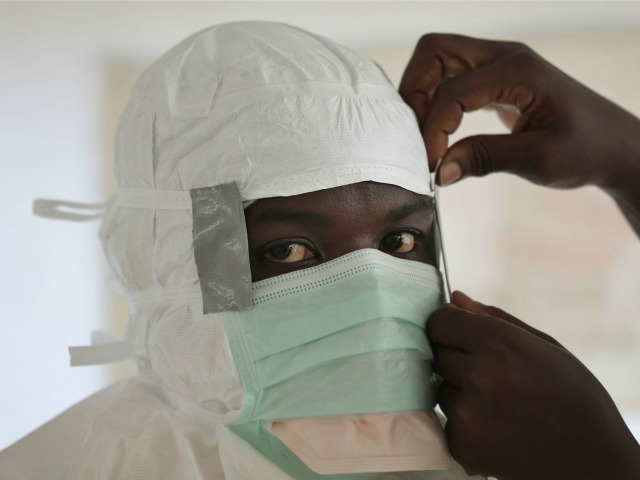Chaos in the halls of power in Monrovia has reigned amid Liberia’s fight against the Ebola outbreak engulfing it, with foreign donors clashing with Liberian officials on how to best distribute funding and resources in the country.
In an exclusive report based on minutes from meetings between high-level Liberian officials and global health organizations and their donors, the New York Times reports that much of the tension arises from Liberian officials feeling suppressed in providing input on how best to use resources. The result has been millions of dollars in aid sitting unused at the United Nations, as officials debate where best to built new Ebola Testing Units and health facilities.
Officials quoted on background downplayed the tensions, describing meetings of the “Incident Management System,” charged with running Ebola efforts, as “collegial” and “effective.” Others attested to “showmanship and political posturing” in said meetings, however, and the proof of such stagnation in bureaucracy is in the lack of effective use of funding.
The New York Times notes “poor coordination and serious disagreements between Liberian officials and the donors and health agencies” are to blame for a number of significant problems. Several regions of the nation are desperately needing isolation beds for Ebola patients and not getting them, for example, because “one Asian and two European donor countries are insisting on building new Ebola field hospitals in Monrovia, where hospitals have empty beds.” There is no plan for how to reintegrate Ebola survivors into society and the count of Ebola patients is trusted little by medical personnel in the nation. Said one doctor working in Liberia, Dr. Hans Rosling of Sweden, “We are absolutely sure that we cannot be sure about the data.”
Nonetheless, the news out of Liberia has been overwhelmingly positive in the last week or so. Liberian newspapers are touting “massive improvement” in the number of Ebola cases and survivors. “I feel very good. The people are working well – doctors, nurses, and other healthcare workers – they are all very vigilant and very efficient; more importantly, most of the ETUs don’t have patients,” President Ellen Johnson Sirleaf to journalists this week.
This is true mostly in Monrovia, however, while more remote areas of Liberia remain unreached by Western medical personnel. Even in Monrovia, a reduction in the number of Ebola diagnoses does not necessarily mean that that nation has improved the social status of those affected by Ebola. It is estimated that thousands of children lost both their fathers and mothers to the disease, and remain under no one’s care, attempting to survive in some of the nation’s most impoverished areas. Pregnant women who survived the outbreak are increasingly abandoning their newborn children in garbage piles in Monrovia, orphaning them in the hope that someone with more opportunities will find and raise them.

COMMENTS
Please let us know if you're having issues with commenting.